Do you always find faults in your partner’s behavior? Or is your partner constantly criticizing you? Nitpicking is a damaging behavior and can lead to the end of your relationship.
What is nitpicking?
Nitpicking is a form of hypercriticism in romantic relationships. It is when you look for faults in unimportant or irrelevant things and use those mistakes and errors to unnecessarily criticize your partner.
Continually pointing out your partner’s flaws and mistakes can lead to frustration, resentment, tension, and conflict in a loving relationship.
How nitpicking affects a relationship

Relationships are never easy. It is highly likely that our partners will have very different personalities, beliefs, ideologies, and habits than us. When we try to mold them the way we want to see them, that’s when the problem begins. When you are unable to accept your partner as they are, you will look for faults to point out in their personality.
As you believe your partner needs to change the way you want them to, you will start criticizing anything and everything that you dislike and disagree with. And this can adversely affect the foundation of your relationship.
You may use criticism constructively to help your partner improve. But when it is delivered in a negative or inappropriate manner on a regular basis, nitpicking can seriously damage a relationship. Founder of CompassionPower and author Steven Stosny. Ph.D. writes “Criticism is an utter failure at getting positive behavior change. Any short-term gain you might get from it just builds resentment down the line.”
Read also: Transforming Criticism into Wishes: A Recipe for Successful Conflict
He explains that criticism is an ineffective tool to help someone improve as it involves two basic factors that are unacceptable to most human beings:
- A call for submission
- Devalues the criticized individual
To err is human. By pointing out your partner’s errors and flaws you demean, embarrass and belittle your partner. You are sending a strong message that your partner is not good enough for you as they are and you really want them to change.
“Essentially, nitpicking is a sign that you don’t fully respect your mate,” writes marriage consultant and author Sheri Stritof. She adds “Even if this isn’t your intention, it can be received this way… If you continue to nitpick at your spouse, a growing resentment can create a wall between the two of you.”
10 Signs of a nitpicking
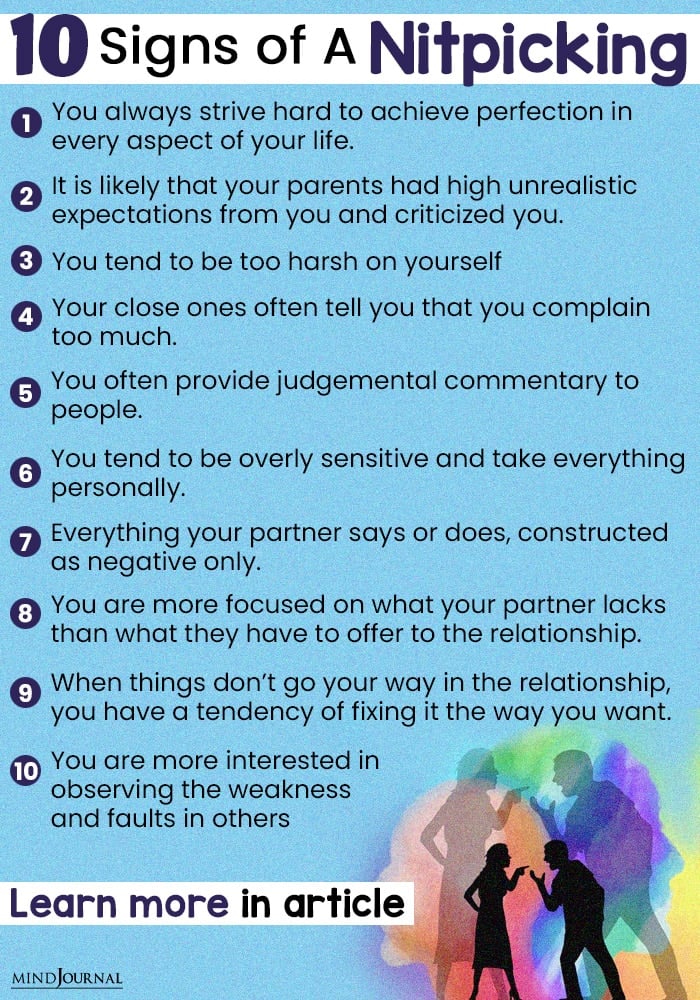
Here are a few signs of a nitpicker or a critical person as explained by relationship and transformational coach Dr. Jessica Higgins.
1. You are a perfectionist. You always strive hard to achieve perfection in every aspect of your life, including your relationships. You refuse to accept anything that is below your perception of perfection.
2. You had exceptionally critical parents. It is likely that your parents had high unrealistic expectations from you. They never refrained from criticizing you when you failed to reach their impractical standards. Now you carry this mindset, behavior, and relationship pattern in your romantic relationship as an adult.
3. You criticize yourself. You tend to be too harsh on yourself as well when you screw up or make a mistake as you are a perfectionist. When you criticize yourself, you will end up criticizing your partner as well. “Think of what you automatically say to yourself if you drop something or make a mistake. Critical people will typically think, “Oh you idiot,” or, “Jerk,” or just curse or sigh in disgust. If you do that to yourself, you most likely do it to others as well,” writes Steven Stosny, Ph.D.
Read also: 4 Kinds Of Self-Criticism You Must Put An End To
4. Your partner, family members, friends, and coworkers often tell you that you have a habit of nitpicking unnecessarily.
5. You are often judgemental of others and provide critical commentary to people on their personality, habits, behavior, choices, mentality, attitude, and appearance.
6. You tend to be overly sensitive and take everything personally. You feel insulted and offended when anyone criticizes you or offers you any feedback.
7. It is easier for you to find someone’s fault and criticize them than to praise them and give positive reinforcement.
8. You are more focused on what your partner lacks than what they have to offer to the relationship. Instead of appreciating their uniqueness and value, you are more interested in their flaws.
9. You have a habit of micromanaging everything. When things don’t go your way in the relationship, you have a tendency of fixing it the way you want.
10. You have a negative mindset and lack empathy. You are more interested in observing the weakness and faults in people’s behavior and mannerisms than understanding what drives their behavior.
Can you identify these signs in yourself or in your partner? Then there’s no doubt that nitpicking has crept into your relationship.
Read also: 6 Ways To Protect Yourself From Destructive Criticism
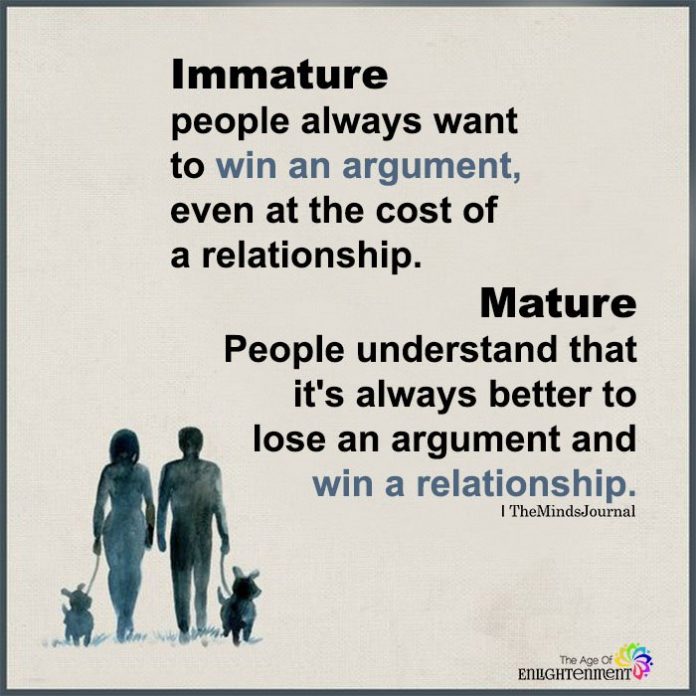
Dealing with nitpicking in a relationship
If you have understood the psychology of nitpicking and if you are a nitpicker and constant criticism damages your emotional connection with your partner, then here are a few things you can do to save your relationship:
1. Let go of the little things
John Gottman, Ph.D., one of the most influential therapists and authors, believes that 69% of problems in a relationship are unsolvable. Steven Stosny, Ph.D. adds “Criticism is the first of John Gottman’s famous Four Horsemen of the Apocalypse, which predict divorce with more than 90% accuracy.”
However, criticism can be seriously damaging even for “nonmarried couples” as well, according to Dr. Gottman. When nitpicking becomes a habit, it can eat away at the foundation of your relationship. And it is always the little things that lead to criticism and friction between you and your partner.
When you enter a long-term, committed relationship, you need to learn to live with certain temperamental qualities and personality traits that you may dislike. When you are unable to accept these issues, it can lead to perpetual conflict.
As you begin to accept and live with certain unsolvable problems in a relationship, you begin to realize that just because you love someone, it’s not necessary to like everything about them. You can dislike certain aspects of your partner and still love them. That is the very essence of unconditional love.
“Sure, people can make changes and marriage is about adapting to a life together; that’s a natural part of it. However, if the little things cause conflict, how can the two of you handle real conflict or the serious issues that will arise?” writes marriage consultant Sheri Stritof.
2. Choose to be nice instead
If you often criticize your partner, then there are certain things you can do to save your relationship or marriage. Although some of these things may seem insignificant, they can have a strong positive impact. Sheri explains “First and foremost, the most important thing you can do is be nice. When you feel like picking out a flaw, turn your own thinking around to simply be kind and show respect. A compliment can be far more helpful.”
When it comes to building happy, lasting relationships, being nice to your spouse and making small loving gestures often can make a huge difference.
Susan Boon, Ph.D., a social psychologist at the University of Calgary, says “The little things matter. What a happy marriage is based on is a deep friendship, knowing each other well, having mutual respect, knowing when it makes sense to try to work out an issue, when it is not solvable. Many kinds of issues simply aren’t solvable.”
The secret to happiness is to identify the relationship problems that can be productively solved and letting go of the unsolvable problems. “Learn to live with the rest. Just put up with it. Workaround them. Commit to staying together, even though this is something you don’t like,” adds Boon.
Read also: 10 Most Common Anger Styles and How Most Partners Respond To Them
3. Be supportive
Supporting your partner through their mistakes and faults is another way to overcome nitpicking in a relationship. Make some effort to know, understand and listen to your partner. When you and your partner share each other’s feelings in a nonjudgmental way, you can know them even better. Susan Boon says “Make sure to balance the negatives with positives. Your marriage has to be heavily in favor of the positives.”
Although being nice and supportive in a relationship may seem like common sense, adapting to positive behavior when you are inclined to criticism can be a greater challenge than you imagine.
The key is to be loving and supportive consistently. Boon adds “You have to do nice things often. But it’s harder to be nice when the heat is on, when you’re really angry, or when something has happened for the 15th time. Nevertheless, the balance must be heavily, heavily stacked in the positive,” in order to build a happy relationship.
4. Show respect
When you begin to respect your partner, you will become more accepting of their quirks and criticize them less. When you use positive emotions in your communication and interactions, you will be able to counter the damaging effects of nitpicking and experience a satisfying, happy relationship.
Shae Graham Kosch, Ph.D., director of the behavioral medicine program in community health and family at the University of Florida, explains “Most marital conflicts don’t ever get resolved.” But the problems are irrelevant and solving them is unimportant when you have deep mutual respect.
When you focus on the positive, you learn to live happily with your individual differences and opinions. You realize it is important to accept your partner’s perspective and focus more on discussion than criticism. Kosch adds “Couples that have good marriages retain their mutual respect and understanding of each other – even during discussions of their differences – will stay together much longer.“
5. Understand your needs
Oftentimes what we criticize in others is exactly what we dislike in ourselves. When we don’t have the strength to acknowledge our own faults or the will for self-development, we choose to criticize our partners instead.
As we lack control in our own lives, we falsely point out the lack of control in their lives. Why? Because it’s easier to ask someone else to change than to change ourselves. It is only by understanding our own psychological and emotional needs from ourselves and our partners can we fruitfully stop nitpicking.
Sheri Stritof writes “Before you decide to nitpick, focus on your internal feelings. What is it that you really need? Attention? To be heard, seen, or hugged? There’s a good chance the nitpicking is just a poor attempt to get some other important need met.”
“The best way to get what you need is to become what you need. Nagging your partner into perfection will only get you so far – you are the only one who can ultimately make yourself happy. Happiness is a daily choice and a mindset,” explains Vancouver-based sex therapist Dr. Teesha Morgan.
Read also: How Self-Awareness Can Improve Your Relationships
6. Choose your battles
Nobody is perfect. All of us have some special qualities and some really annoying habits. Pick your battles wisely and you will realize how easy it is to save your relationships. When you criticize your partner constantly, they will spend more time thinking about the negative aspects of the relationship. So choose what issue you want to point out and which ones you need to let go of.
Terri Orbuch, Ph.D., family therapist and research scientist with the Institute for Social Research at the University of Michigan, tells WebMD “You can’t have a conflict over everything. We call it ‘kitchen sinking’ – bringing up things that happened five, 10 years ago.”
Are you being nitpicked?
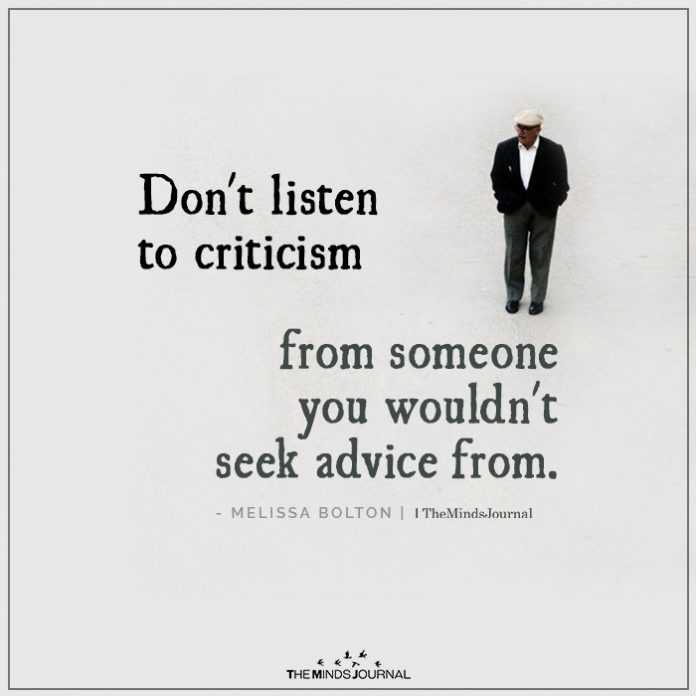
If you are being constantly criticized, demeaned, and belittled by your partner or spouse, then you need to have an open and honest conversation with them. Let them know how their behavior is affecting you personally and your commitment to the relationship. This can certainly be challenging, but it is crucial that you have this discussion.
Marriage consultant Sheri Stritof suggests “Describe the hurt and pain you feel from this behavior. Let your spouse know that when you think you’re being nitpicked, you won’t overreact but you will say ‘enough’ and leave the room.”
This will help your partner become aware of their negative behavior. However, if their toxic behavior continues it can be best to seek professional help and counseling.
Read also: 8 Ways To Better Understand Your Partner and Deepen Your Relationship
Here is an interesting video that you may find helpful:
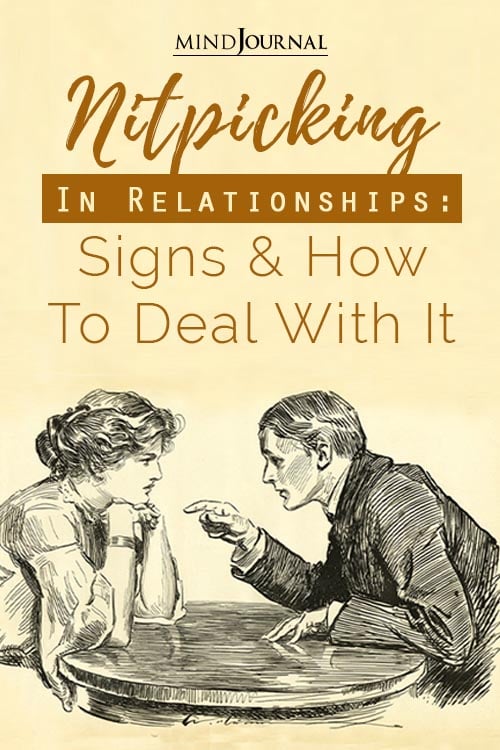
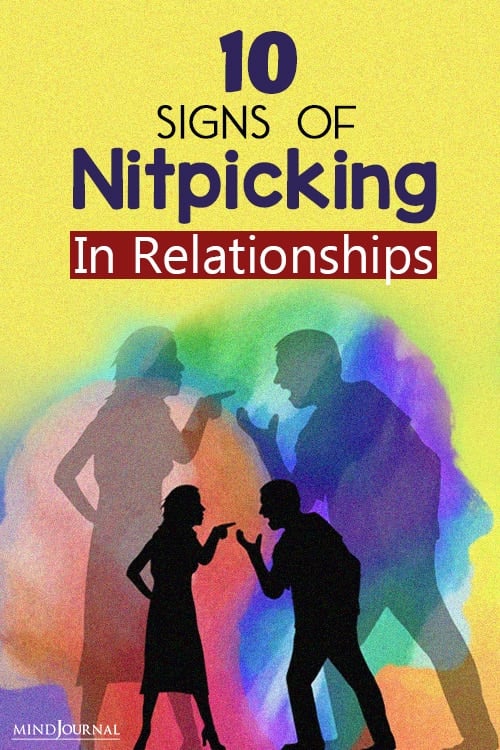









Leave a Reply